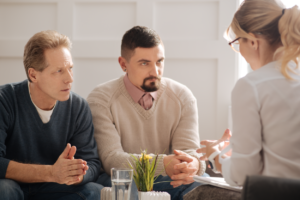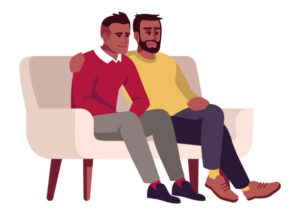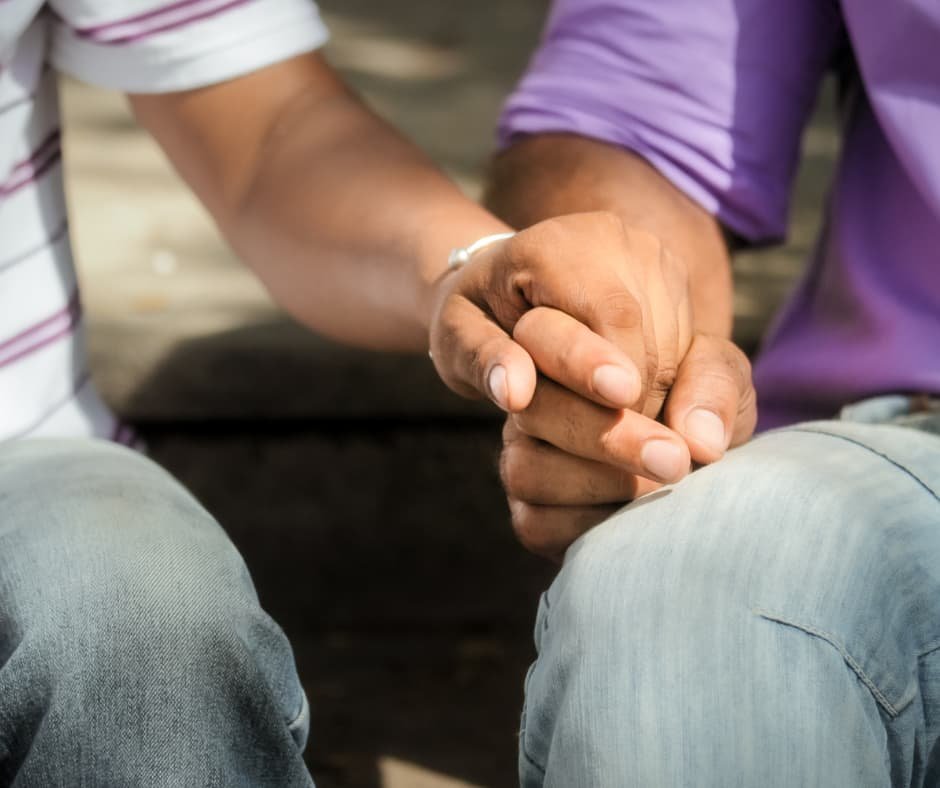Marriage is a sacred union that celebrates love, commitment, and the bond between two individuals. In recent years, significant progress has been made toward recognizing and legalizing same-sex marriages. However, just like any other relationship, same-sex marriages can face challenges that require professional assistance. In this article, we will delve into the world of gay marriage counseling, its importance, and how to find the right support near you.
Contents
Understanding Gay Marriage Counseling

Gay marriage counseling, also known as same-sex marriage counseling or LGBTQ+ marriage counseling, is a form of counseling specifically designed to address the unique challenges and issues faced by same-sex couples. It provides support and guidance to individuals in same-sex relationships, helping them navigate various aspects of their partnership.
The primary goal of gay marriage counseling is to help same-sex couples build and maintain healthy, fulfilling relationships. It focuses on improving communication, resolving conflicts, strengthening emotional bonds, and fostering overall relationship satisfaction. The counseling process typically involves exploring individual and collective experiences, beliefs, and values related to sexual orientation, identity, and relationship dynamics.
Key Aspects of Gay Marriage Counseling
Here are some key aspects of gay marriage counseling:
- Affirming environment: Gay marriage counselors are typically knowledgeable about LGBTQ+ issues and provide a safe, non-judgmental space for clients to express themselves. They respect and affirm the unique challenges faced by same-sex couples.
- Relationship dynamics: Counselors help couples explore their relationship dynamics, including communication styles, expectations, and goals. They assist in identifying areas of strength and areas that may need improvement.
- Emotional and psychological support: Same-sex couples may face societal stigma, discrimination, and internalized homophobia, which can affect their emotional well-being. Counseling provides a supportive space to address these issues and develop strategies for coping with external pressures.
- Conflict resolution: Like any relationship, same-sex couples may experience conflicts. Counselors assist couples in learning effective conflict resolution strategies and negotiation techniques to address disagreements and build healthier communication patterns.
- Family and societal dynamics: Gay marriage counseling can also address issues related to coming out to family and friends, dealing with unsupportive relatives, or navigating societal expectations. Counselors may guide managing these external influences.
- Pre-marital counseling: Gay marriage counseling may include pre-marital counseling sessions to help couples prepare for a long-term commitment. These sessions focus on important aspects such as shared values, financial planning, and future goals.
Finding Gay Marriage Counseling Near Me

To find gay marriage counseling near you, there are several approaches you can take:
- LGBTQ+ organizations: Contact local LGBTQ+ organizations or community centers in your area. They often have resources and can provide referrals to counselors who specialize in working with same-sex couples.
- Online directories: Utilize online directories that specifically focus on LGBTQ+ affirmative therapists and counselors. These allow you to search for therapists by location and filter for those who specialize in LGBTQ+ issues.
- Professional associations: Reach out to professional associations of mental health providers, such as the American Psychological Association (APA), the American Association for Marriage and Family Therapy (AAMFT), or local counseling organizations. They may have directories or referral services to help you find suitable counselors.
- Personal recommendations: Seek recommendations from friends, family, or other members of the LGBTQ+ community who have had positive experiences with gay marriage counselors. They can provide insights and referrals based on their therapy journeys.
- Online therapy platforms: Consider online therapy platforms that offer virtual counseling services. They have therapists who specialize in LGBTQ+ issues and can provide gay marriage counseling remotely.
Benefits of Seeking Professional Help
Seeking professional help, such as counseling or therapy, can provide numerous benefits for individuals and couples facing various challenges in life. Here are some of the key advantages of seeking professional help:
- Emotional support: Professional counselors and therapists provide a safe and supportive environment for individuals to express their thoughts, feelings, and concerns. They offer empathy, validation, and understanding, which can be invaluable in times of distress, sadness, or confusion.
- Objectivity and perspective: Mental health professionals bring an unbiased perspective to the table. They can help individuals gain insight into their situations, challenge negative thought patterns or behaviors, and offer alternative viewpoints. This objectivity can be especially helpful when dealing with relationship issues, as counselors can help couples see beyond their immediate conflicts and work toward resolution.
- Skill development: Therapists and counselors equip individuals with valuable coping strategies, communication skills, and problem-solving techniques. These skills can be applied to various areas of life, including relationships, work, and personal growth. Learning and practicing new skills can lead to improved overall well-being and a greater sense of control and resilience.
- Relationship improvement: Couples therapy or marriage counseling can be highly beneficial for relationships. A skilled therapist can help couples improve their communication, develop healthier conflict resolution strategies, rebuild trust, and deepen emotional intimacy. Seeking professional help early on can prevent small issues from escalating into larger problems, promoting a stronger and more fulfilling relationship.
- Self-discovery and personal growth: Therapy provides an opportunity for self-reflection, self-discovery, and personal growth. It can help individuals gain a deeper understanding of themselves, their values, and their goals. Through therapy, people can identify patterns that may be holding them back, work through unresolved issues from the past, and develop a clearer sense of identity and purpose.
Communication Strategies for Healthy Relationships

Effective communication is fundamental to building and maintaining healthy relationships. Here are some key communication strategies that can enhance the quality of your relationships:
- Active listening: Practice active listening by fully focusing on what the other person is saying without interrupting or formulating your response in your mind. Show interest through non-verbal cues, such as maintaining eye contact, nodding, and using verbal affirmations. Reflect on what you’ve heard to ensure understanding.
- Use “I” statements: When expressing your thoughts, feelings, and concerns, use “I” statements instead of “you” statements. This helps avoid blaming or accusing the other person and promotes ownership of your emotions. For example, say, “I feel hurt when this happens” instead of “You always make me feel hurt.”
- Express empathy and understanding: Validate the other person’s feelings and experiences by expressing empathy and understanding. Show that you genuinely care and are willing to see things from their perspective. This fosters a sense of trust and emotional connection.
- Be mindful of non-verbal communication: Pay attention to your non-verbal cues, such as facial expressions, body language, and tone of voice. Non-verbal communication can often convey more meaning than words alone. Ensure that your non-verbal cues align with the message you want to convey.
- Avoid defensive responses: Instead of becoming defensive or immediately reacting to criticism or conflict, take a moment to pause and reflect. Responding defensively can escalate tensions and hinder productive communication. Try to approach conflicts with an open mind and a willingness to find solutions together.
- Clarify and ask questions: When in doubt or when something is unclear, seek clarification. Ask open-ended questions to encourage deeper conversations and gain a better understanding of the other person’s thoughts and feelings. Avoid making assumptions and give space for them to express themselves fully.
- Practice compromise and negotiation: Relationships often involve differences and conflicts. Instead of approaching disagreements as win-lose situations, strive for compromise and negotiation. Find common ground, be willing to give and take, and work collaboratively towards solutions that benefit both parties.
- Time and place: Consider the timing and setting of your conversations. Find a suitable time when both parties are available and can focus on the discussion without distractions. Choosing a comfortable and private environment can promote openness and reduce external interruptions.
Approaches and Techniques in Gay Marriage Counseling

In gay marriage counseling, therapists utilize various approaches and techniques to address the unique challenges and dynamics faced by same-sex couples. Here are some common approaches and techniques used in gay marriage counseling:
- LGBTQ+ Affirmative Therapy: This approach recognizes and affirms the diverse experiences, identities, and relationships within the LGBTQ+ community. Therapists create a safe and non-judgmental space for same-sex couples to explore their feelings, challenges, and strengths.
- Relationship Assessment: Therapists may use assessment tools or interviews to gain a comprehensive understanding of the couple’s relationship dynamics, communication patterns, and areas of concern. This assessment helps identify specific issues and tailor the counseling approach accordingly.
- Emotionally Focused Therapy (EFT): EFT focuses on identifying and transforming patterns of emotional disconnection within relationships. Therapists help couples recognize and express their underlying emotions, needs, and attachment styles, fostering greater emotional intimacy and strengthening the bond between partners.
- Communication Skills Training: Effective communication is vital in any relationship. Therapists teach couples specific communication skills, such as active listening, assertiveness, and using “I” statements. These skills promote understanding, empathy, and clearer expression of thoughts and feelings.
- Conflict Resolution Techniques: Same-sex couples, like any other couples, can face conflicts and disagreements. Therapists guide couples in learning constructive conflict resolution techniques, such as negotiation, compromise, and problem-solving strategies. The goal is to facilitate healthy discussions and find mutually satisfactory resolutions.
- Building Resilience: LGBTQ+ individuals and couples may face unique stressors and external pressures. Therapists help couples develop coping strategies, resilience, and self-care practices to navigate challenges, such as discrimination, societal stigma, or family dynamics.
Conclusion
Gay marriage counseling plays a vital role in supporting and strengthening same-sex relationships. By seeking professional help, couples can enhance communication, overcome challenges, and build a resilient and fulfilling partnership. Remember, every relationship faces its unique struggles, and reaching out for assistance can pave the way for a healthier, happier, and more connected future together.
Life may sometimes be challenging if you are gay, but Online Gay Counseling can help. Get experienced LGBTQ therapists at PrideMantra: Book a trial LGBTQ therapy session.


